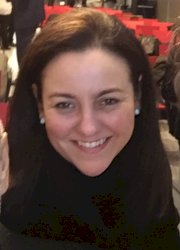
In this interview we found out more about Cláudia Ferreira da Rosa Sobreira who is an Associate Professor of Neurology at the University of Sao Paulo, Brazil

Affiliation: Department of Neuroscience-Division of Neurology, Ribeirao Preto Medical School, University of Sao Paulo, Brazil
Position: Associate Professor of Neurology
What education and training did you have to arrive at your current position?
Undergraduate and Graduate (PhD) degrees at Ribeirao Preto Medical School, University of Sao Paulo; International Fellowship during Graduate degree (Scholarship from CAPES) at the Department of Neurology, College of Physicians and Surgeons of Columbia University, New York, NY, USA, under supervision of Profs Armand Miranda and Salvatore DiMauro.
What lead you to follow a career in the Myology field in particular?
The scarcity of professionals working in the area and the clear need for assistance and research development in the field of myology in Brazil led me to follow a career in the field.
What is your current research/clinical interest in Myology?
My main research interest is the study of clinical and pathophysiological aspects related to primary and secondary mitochondrial dysfunction.
Why are you passionate about developing a Neuromuscular Centre in Brazil?
Because of the challenges for establishing the diagnosis and the need for patient care and research development in this field.
What is the nature of the work you are involved with in Brazil?
I am involved in research activities related to muscle diseases and mitochondrial diseases, as well as clinical practice in our University Hospital and a private clinic.
What are the regional challenges from the point of view of local doctors in the field if Myology?
The challenges in the field of myology are related to prompt diagnosis, especially regarding assess to specialized laboratory tests, as well as the insertion in multidisciplinary care and rehabilitation programs.
How does your work help patients in this region?
We provide diagnosis and specialized care through our University Hospital and clinical practice, advice to assist physicians in the care for patients with myopathy or mitochondrial disease. We also contribute to education in the field.
How do you see networking as a way to empower Myologists?
The establishment of collaborative networks is the key to promote the advancement of knowledge in any area, but it is of special importance when dealing with rare diseases.
How does being part of the WMS Community encourage you and help your work?
The WMS' contribution to in-depth and comprehensive education in the field of myology is outstanding.
This article is presented by the
Myology developments across the world Committee.
Published on 8 February 2022.